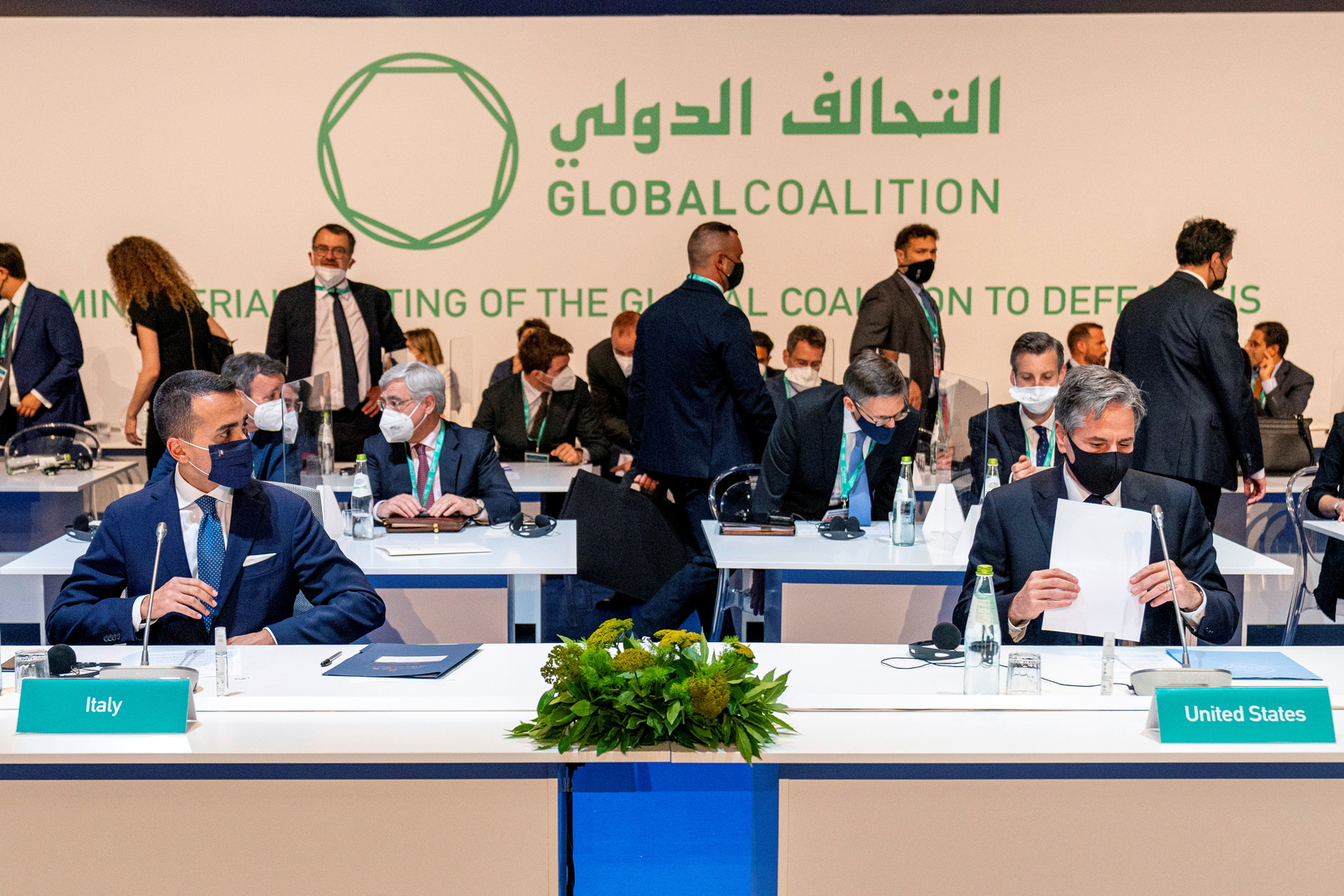On 9 December, Iraq declared that the Combined Joint Task Force – Inherent Resolve (CJTF-OIR), an international force charged with maintaining the defeat of ISIS, had completed its combat mission in the country. The coalition’s pullout is part of the Biden Administration’s strategy to reduce American involvement in Iraq’s affairs, and runs in line with the West’s recent efforts to diminish military engagement in the Middle East. However, the transition from combat to noncombat assistance raises major implications and questions on future operations in the region, particularly as ISIS threats persist in both Syria and Iraq.
Meaningful Timing
On 9 December, Iraqi National Security Adviser Qasim al-Araji announced the end of the combat mission led by the international coalition to defeat ISIS, tweeting, “Today we have completed the last round of dialogue with the global coalition that started last year, to formally announce the end of its combat mission and its withdrawal from Iraq. Our relationship with the global coalition will continue in the field of training, consultation and empowerment.” On the same day, Director of Media in the Ministry of Interior, Major General Saad Maan added, “The coalition will complete the transition to noncombat tasks before the end of this year, as agreed.”
This development – which coincided with the fourth anniversary of the defeat of ISIS by Iraqi forces – is gaining particular relevance and momentum, as it comes in the context of major shifts taking place in the region. Firstly, the end of the coalition’s combat operations in Iraq is consistent with the US directive to reduce direct engagement in regional issues and crises and abides by the agreement concluded between the US and Iraq on 26 July, that stipulated the withdrawal of all US forces from Iraq by the end of 2021.
Secondly, US military withdrawal may have influenced Iraq’s regional relations. For instance, Turkish attempts to ease tensions amongst regional players signals change. Iran is hoping to turn a new page in foreign relations, and conversely, Arab States including Egypt, Iraq and Jordan, seek to strengthen their ties with the country.
Thirdly, the cessation of combat assistance appears to be related to political developments in Iraq that feature growing demands for an end of foreign military presence, and an attempt by elites to restore Iraq’s regional footing through partnership and cooperation initiatives across neighboring states.
Implications
The cessation of combat activities by the global coalition to defeat ISIS presents a number of implications concerning the future of its role in the region, namely:
Continuing logistical support: The global coalition transferred combat duties to Iraqi forces, offering logistical support and technical assistance in its stead. This was reflected in the statement issued by the coalition on 9 December, which states, “Many brave men and women gave their lives to ensure ISIS never returns, and as we complete our combat role, we will remain here to advise, assist, and enable the Iraqi Security Forces, at the invitation of Republic of Iraq. We are confident that the fruits of our strong partnership will ensure ISIS will not reconstitute and threaten the Iraqi people.”
Depending on regional allies: The transition to noncombat operations by the coalition may be an attempt by international forces, most prominently the US, to capitalize on recent regional changes, which prompted the transfer of military missions against ISIS almost entirely to countries of the region. This is evident, for example, in Iraq, where over the past few months, the coalition has begun to withdraw its military equipment. A statement by the coalition on 30 November stipulated, “logistics headquarters moved from Iraq to Kuwait last week, a demonstrative step towards the conclusion of the transformation of Combined Joint Task Force – Operation Inherent Resolve to the advise, assist, and enable role that will be achieved in the coming weeks”, according to Coalition officials.
Focusing on Syria: The termination of combat missions to Iraq is likely to increase the focus on developments in Syria; a likelihood that is reaffirmed by a statement from the US Department of State last November 12th, which reiterated the continuation of its military mission in Syria. “Terrorist groups like ISIS in Syria directly threaten U.S. national security and the Syrian people. The United States remains committed to the military mission against ISIS. We will maintain our mission in Syria until the threat posed by the terrorist group is eliminated.” In this context, ISIS continues to pose a threat in Syria, particularly with reports of its efforts to reconstitute and revive its influence. The organization maintains secret guerrilla cells, and in some areas, such as central Syria and eastern Badia, it relies on financial mechanisms to support its operations, such as the imposition of taxes on the local population, as well as the use of resources it has amassed over the past years. Moreover, ISIS benefits from the geographical nature of the region in hiding and camouflage, as well as its permeability which allows the movement of its members across the borders between Syria and Iraq.
A return to Iraq still an option: The timing of the announcement has raised some concerns, in view of the continuing threat in Iraq where ISIS continues to carry out its attacks. For instance, on 26 October last, ISIS launched an attack on the village of Hawasha in the Diyala province of eastern Iraq, killing 11 people. ISIS attacks have also recently escalated in the Kurdistan region of Iraq, the most notable of which was the attack on 2 December on two villages on the border of Sarkran and Jebel Qara Gogh in the Makhmour district, which resulted in the death of 13 people, mostly Peshmerga forces. Three days later, ISIS also attempted to take control of the Lahiban village, located in Aldabs district of the Kirkuk province, before being neutralized by Iraqi and Peshmerga forces. In this context, the tenuous security situation in Iraq could lead to the return of combat assistance by the coalition.
Potential risks
The end of the international coalition’s combat mission against ISIS in Iraq reaffirms the American mandate to reduce direct involvement in regional conflicts, and to relinquish military duties to the countries of the region itself. However, this decision remains fraught with many risks, especially as it comes at a time when ISIS is trying to reconstitute and assert itself by carrying out attacks in both Syria and Iraq.


